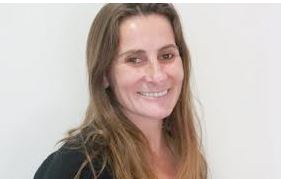SORS: Multiomics and Third Generation Sequencing, at the forefront of genomics research
Objectives
Abstract: The development of new sequencing platforms and the combination of omics assays creates exciting opportunities for formulating and answering new scientific questions that were previously difficult to address. In this seminar I will present new methods and bioinformatics tools for the integration of multiomics data to infer multi-layered systems biology models, with application to the modeling of autoimmune disease progression. I will also present the Functional Iso-transcriptomics (FIT) framework (SQANTI, IsoAnnot and tappAS), that combines third-generation sequencing technologies with high-throughput positional function prediction and novel statistical methods to unravel the functional impact of the post-transcriptional regulation of gene expression.
 Short bio: Ana Conesa is Professor of Bioinformatics at the Microbiology and Cell Science Department at the University of Florida and founder of the Bioinformatics company Biobam SL. She graduated as Agricultural Engineer at the Polytechnical University of Valencia in 1993 and did her PhD in at the University of Leiden in the Netherlands. After a short appointment as bioinformatics project leader at TNO Quality of Life (The Netherlands) she obtained a Ramon y Cajal award and joined the Valencia Agricultural Research Institute in 2003. She moved to the Prince Felipe Research Center in 2007. She became UF Professor in 2014.
Short bio: Ana Conesa is Professor of Bioinformatics at the Microbiology and Cell Science Department at the University of Florida and founder of the Bioinformatics company Biobam SL. She graduated as Agricultural Engineer at the Polytechnical University of Valencia in 1993 and did her PhD in at the University of Leiden in the Netherlands. After a short appointment as bioinformatics project leader at TNO Quality of Life (The Netherlands) she obtained a Ramon y Cajal award and joined the Valencia Agricultural Research Institute in 2003. She moved to the Prince Felipe Research Center in 2007. She became UF Professor in 2014.
Ana Conesa’s group is interested in understanding functional aspects of gene expression at the genome-wide level and across different organisms. Her has developed statistical methods and software tools that analyze the dynamics aspects transcriptomes, integrate these with other types of molecular data and annotate them functionally, with a special focus on Next Generation Sequencing (NGS) data. Some of our popular software tools are Blast2GO, PaintOmics, maSigPro, NOISeq, Qualimap, SQANTI, tappAS, etc. She has lead international projects such as STATegra and DEANN where European and American scientists developed new tools for the analysis of sequencing data. She has published over 115 research papers that have received more than 18,000 citations.
Speakers
Ana Conesa, PhD, UF Preeminence Professor Bioinformatics, Genetics Institute and Microbiology and Cell Science Department, University of Florida, USA
